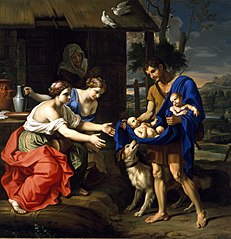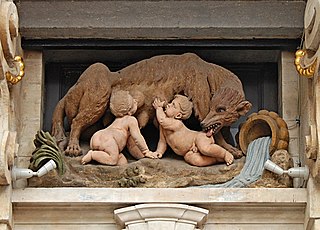
Evola makes use of the traditional element for building his own absolutely personal spiritual cosmos. He uses the value of Tradition as the aristocratic touchstone, that is, as the opposite to the modern world. Continue reading

Evola makes use of the traditional element for building his own absolutely personal spiritual cosmos. He uses the value of Tradition as the aristocratic touchstone, that is, as the opposite to the modern world. Continue reading

The ideal of the absolute individual was for him an expression of the will sufficient in oneself: thinking indeed has nothing to do with it, and he is right, but you cannot move away from it: nor can you willfully experiment with thinking, which ceases to be dialectical, but volitional. He pointed out that in yoga, essentially the strength of the will was awakened and recovered in its magical movement, and it becomes the flow of Kundalini. Continue reading
This is Part 2 section 7 of Sintesi di dottrina della razza by Julius Evola in which he discusses the Hyperborean race. The texts that he refers to are Revolt Against the Modern World and The Myth of Blood; the chapters in Revolt on the Hyperboreans should be read in … Continue reading
This is Part 2 of two parts of an article that originally appeared in EreticaMente as La via del pensiero vivente come controparte operativa del pensiero di Julius Evola by Fabio Mazza. It is translated and published with the permission of the author. Massimo Scaligero was a personal friend to … Continue reading
This is Part 1 of two parts of an article that originally appeared in EreticaMente as La via del pensiero vivente come controparte operativa del pensiero di Julius Evola by Fabio Mazza. It is translated and published with the permission of the author. Julius Evola was involved with various anthroposophists, … Continue reading

The “presence” of the genio, the lares or the penates in the group to which it corresponded, was made aware and symbolized by the fire, the sacred flame, that had to burn uninterruptedly in the center of the patristic houses, in the temple placed in the atrium, the place where the pater familias celebrated the rites and in which the various members of the domestic or aristocratic group were gathered for meals. Continue reading

The single, atomic, deracinated individual does not exist. When he presumes to be a being in itself, he is deceived in the most pathetic way, because he cannot even name the last of the organic processes that condition his life and finite consciousness. The individual is part of a group, a folk, a gente. He is part of an organic unity. Continue reading

In regards to Romulus, the myth contains a faith and a spiritual certainty: it is the meaning of a reality that, freed from the person and symbol, was not once, but will always be, and will always be present, in its greatness beyond history, the race that knows how to recall the “mystery”. Continue reading

In our day all of that is fantasy or superstition for many “serious” persons and many “critical” minds. The “facts” are the only things that count for them. The mythical traditions of the ancients have no value, or they have it only insofar as it is supposed that, here and there, they are confused reflections of real events. Continue reading
Next: Hermann Keyserling ⇒ This is the third and final installment of Julius Evola‘s commentary on Giovanni Gentile from Essays on Magical Idealism. Although it is highly technical, we can cut to the main point. First, there is the distinction between spontaneity and freedom. In a free act, “I” make … Continue reading